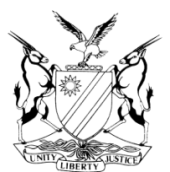REPUBLIC OF NAMIBIA

IN THE HIGH COURT OF NAMIBIA, NORTHERN LOCAL DIVISION, OSHAKATI
REVIEW JUDGMENT
“ANNEXURE 11”
Case Title: The State v Festus Mbishi | CR No.: 47/2020 Case No.: EENHANA 121/2020 | |
Division of Court: Northern Local Division | ||
Heard before: Honourable Mr. Justice January J et Honourable Ms. Justice Diergaardt AJ | Delivered on: 27 August 2020 | |
Neutral citation: S v Mbishi (CR 47/2020) [2020] NAHCNLD 117 (27 August 2020) | ||
The order:
| ||
Reasons for the order | ||
DIERGAARDT AJ (JANUARY J concurring): [1] This matter came before me on automatic review in terms of section 304 of Act 51 of 1977, the accused stood charged for attempted murder read with the provisions of the combating of Domestic Violence Act, 4 of 2003. He was questioned in terms of section 112 1 (b) of Act 51 of 1977 where after he was convicted as charged and sentenced to four (4) years imprisonment without an option of a fine. [2] The Magistrate was queried as follows: ‘6. The Magistrate during questioning asked the accused why he assaulted the complainant in that manner and he replied that he was under the influence of alcohol and he smoked cannabis; 8. Could the Magistrate really be satisfied that the accused admitted the element of intention?’. The magistrate response was as follows: ‘6. I have to concede that it was necessary for me as the presiding officer to pursue the issue of alcohol and cannabis further… 8. to me the accused stabbed the complaint from behind because she was running away from him. Thus, it is my opinion that the accused had satisfied the element of intention.’ [3] The Magistrate correctly made concessions on both issues which I had queried. The accused had in fact raised a defence, intoxication renders an accused with diminished capacity in terms of the law. The magistrate had ignored the accused’s defence and/or likely defence. [4] It must be noted here that section 112(1) (b) gives the presiding officer wider mandate to ascertain an accused persons plea and where a likely defence is brought a not guilty plea in terms of section 113 of the CPA. I must caution here that although such wider mandate does exist, this should not be construed to mean that magistrates’ now assume the role of an interrogator or cross examiner of facts. The remedy whenever in doubt should be sought in the provisions of section 113. The test is always proof beyond reasonable doubt. The magistrate had indicated that the accused should have been given an opportunity to develop his defence further, a clear indication that he was in doubt. [5] I further agree with Liebenberg J statement in the case o S v Hoabeb (CR 36/2018) [2018] NAHCMD 140 (24 May 2018) ‘The primary purpose of questioning the accused in terms of s 112 (1) (b) of the CPA following a plea of guilty, is to safeguard the accused against the result of an unjustified plea of guilty. Moreover, when the court questions the accused it must ensure that s/he admits all elements of the offence in such way that it enables the court to conclude for itself whether the accused is guilty of the offence charged. The accused’s answers must establish an unequivocal plea of guilty. If there is any doubt, a plea of not guilty should be entered. The function of the court is not to evaluate the answers as if it were weighing evidence, neither does it have to decide the truthfulness of the answers or draw inferences therefrom. If the accused’s answers suggest a possible defense, a plea of not guilty should be recorded.’ [6] The Magistrate could not have been satisfied that the accused intended to plead guilty in view of the defence of diminished capacity. [7] In the result it is ordered that:
| ||
Judge(s) signature | Comments: | |
Diergaardt AJ: | ||
January J: | ||
Cited documents 3
Legislation 2
| 1. | Criminal Procedure Act, 1977 | 1919 citations |
| 2. | Combating of Domestic Violence Act, 2003 | 379 citations |
Judgment 1
| 1. | S v Hoabeb (36 of 2018) [2018] NAHCMD 140 (24 May 2018) | 2 citations |